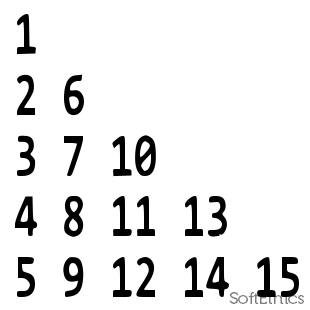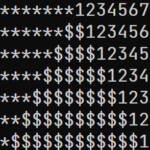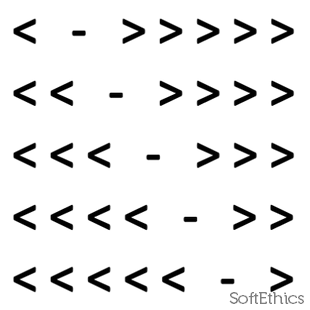/*
Interesting fact about this pattern :-
The last value(bottom-right corner) of the pattern is equal
to the sum of all numbers from 1 to n.
e.g.
1
2 6
3 7 10
4 8 11 13
5 9 12 14 15
last value is 15, which is equal to 1+2+3+4+5
*/
#include<stdio.h>
int main()
{
int n=10;// size
int i,j,k;
for(i=1; i<=n; i++)
{
k = i;
for(j=1; j<=i; j++)
{
printf("%2d ",k);
k=k+(n-j);
}
printf("\n");
}
}
/*
Interesting fact about this pattern :-
The last value(bottom-right corner) of the pattern is equal
to the sum of all numbers from 1 to n.
e.g.
1
2 6
3 7 10
4 8 11 13
5 9 12 14 15
last value is 15, which is equal to 1+2+3+4+5
*/
#include<iostream.h>
int main()
{
int n=10;// size
for(int i =1;i<=n;i++)
{
k = i;
for(int j =1;j<=i;j++)
{
cout<<k<<" ";
k=k+(n-j);
}
cout<<endl;
}
}
/*
* Interesting fact about this pattern :-
*
* The last value(bottom-right corner) of the pattern is
equal to the sum of all
* numbers from 1 to n.
*
* e.g.
*
* 1
* 2 6
* 3 7 10
* 4 8 11 13
* 5 9 12 14 15
*
* last value is 15, which is equal to 1+2+3+4+5
*
*/
class PatternProg
public static void main(String args[]) {
int n = 10; // size
int i;
int j;
int k;
for (i = 1; i <= n; i++)
{
k = i;
for (j = 1; j <= i; j++)
{
System.out.printf("%2d ", k);
k = k + (n - j);
}
System.out.print("\n");
}
}
}
using System;
/*
* Interesting fact about this pattern :-
*
* The last value(bottom-right corner) of the pattern is equal to the sum of all
* numbers from 1 to n.
*
* e.g.
*
* 1
* 2 6
* 3 7 10
* 4 8 11 13
* 5 9 12 14 15
*
* last value is 15, which is equal to 1+2+3+4+5
*
*/
class PatternProg
{
public static void Main()
{
int n = 10; // size
int i;
int j;
int k;
for (i = 1; i <= n; i++)
{
k = i;
for (j = 1; j <= i; j++)
{
Console.Write("{0,2:D} ", k);
k = k + (n - j);
}
Console.WriteLine();
}
Console.ReadKey(true);
}
}
n = 5 # size
for x in range(1, n + 1):
k = x
for y in range(1, x + 1):
print(str(k) + " ", end="")
k = k + (n - y)
print()
"""
Interesting fact about this pattern:
The last last value (botton-right corner) of the pattern is equal to the sum of all numbers from 1 to n.
e.g
Suppose, n=5
1
2 6
3 7 10
4 8 11 13
5 9 12 14 15
last value is 15, that is equal to 1+2+3+4+5
"""





